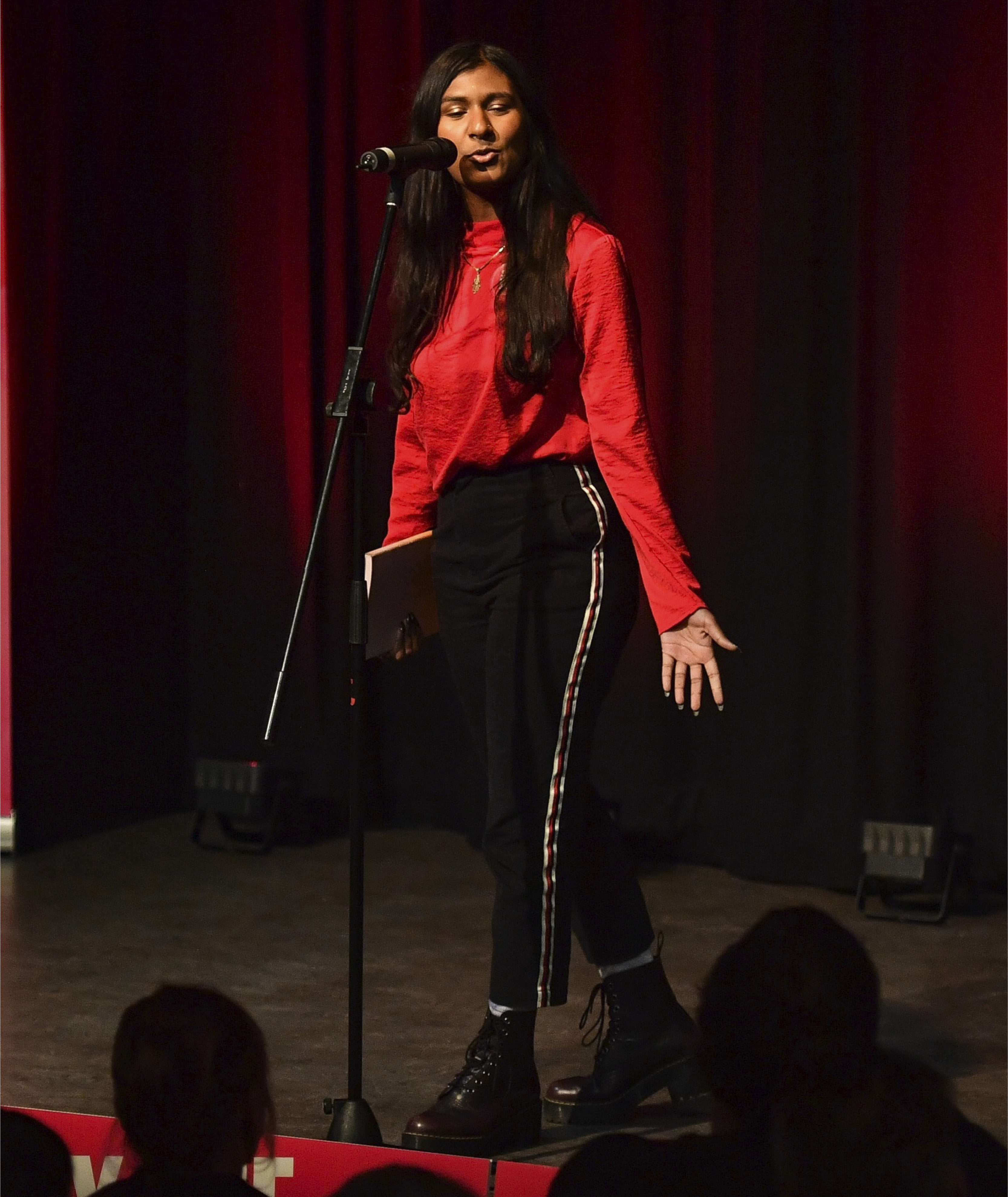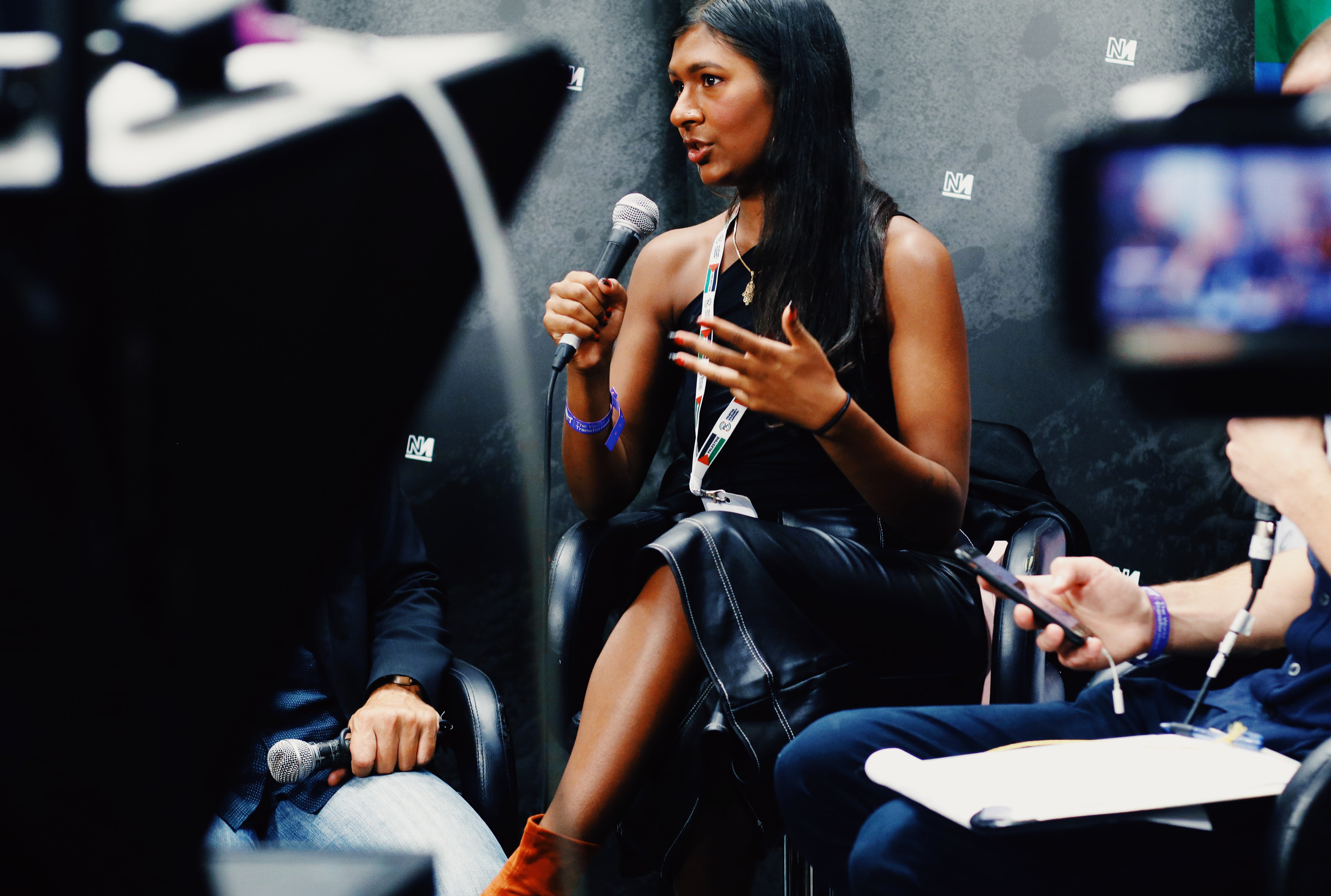- Home |
- Search Results |
- Shelf Life: Ash Sarkar on five books that made her

When I was a kid, my Mum really wanted us to see dark-skinned children of colour taking centre stage in story books. Because there weren’t enough of them, she wrote her own from scratch and stuck in photos of me and my sister. There wasn’t very much narrative – they were just to help us learn to read – but she’d grown up with the colourism that exists within the South Asian community, and really wanted to protect me from it. She understood the power of words and images in shaping your sense of self, particularly if you’re not white.
Black Skin, White Masks is an exploration of the psychological effects of racism. Its author, Frantz Fanon, was a psychiatrist who joined the French Foreign Legion. My Mum gave it to me when I was 13. She was this badass, anti-racist activist who was arrested for being part of the anti-Apartheid movement. She and my grandmother started some of the first domestic violence shelters for black and Asian women in the UK, so my family were really politically active.
I resisted what the book was telling me for very many years, then I re-read it when I was 18 and experiencing racism at university. The book helped me see that, just because you move in these spaces and can talk the talk, it does not mean you will be treated as though you belong. It’s a book that I keep coming back to again and again. It shows how the writing of theory can and should be visceral. I don’t think I’ll ever fully get to the bottom of it.
'I made the decision not to change how I talk for other people'
At the time I had pretty bad insomnia and I was living in Camden and I would go walking up and down the canal at night until I could fall asleep again. It felt weirdly liberating, reading Good Morning Midnight. Also, I’m not going to give away any spoilers, but the last page was one of those really one-two gut punches which I haven’t really recovered from.
Wolf Hall is the most exquisite exploration of political power I have ever read. I loved the way she paints Thomas Cromwell as the thinking man’s bruiser – he’s like Stringer Bell from The Wire, cerebral but prepared to take a life if he has to – with this flair for seeing into people’s souls, and into his own. I had always been fascinated with that time period and I’ve always learned about history though fiction, but until Wolf Hall I’d never read anything created from the ground up, rather than from the top down. I read it in two days.

At the time I had just started working as a journalist and getting closer to parliamentary politics. It helped frame my outlook on it all. But I have never seen myself becoming an MP and I’m not disciplined enough to be a bruiser. You know that whole thing about Thomas Cromwell’s unreadable face, taken from Holbein’s portrait of him? That’s what Hilary Mantel explores. I don’t have one of those faces.
The Lonely Londoners, by Sam Selvon, was one of those books which gave me a little bit of a window into what it was like for my Grandma coming to this country from Calcutta when she was 17. She thought she was going to continue her eduction here, but she didn’t. She was a cleaner in a hospital, then got married. I’d obviously heard a lot of stories from her and from my Mum, but that contradiction between London being so cold and unforgiving and the warmth and the vibrancy of the community you were trying to create, that tension running throughout the book, really made me appreciate everything her generation did to cement our lives here.